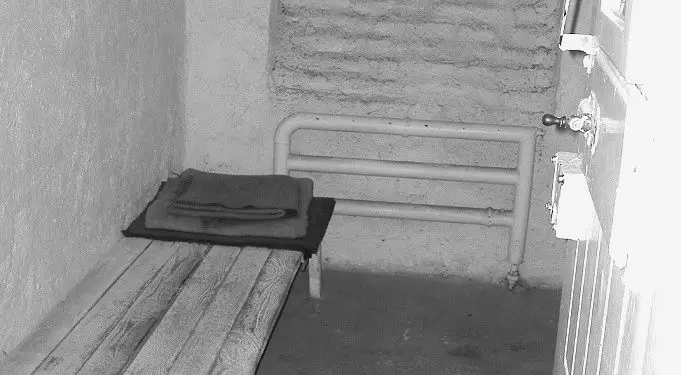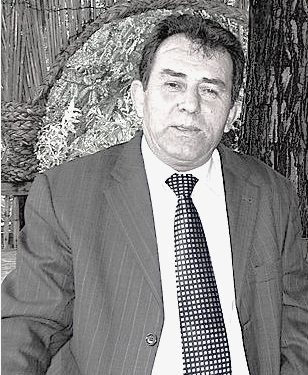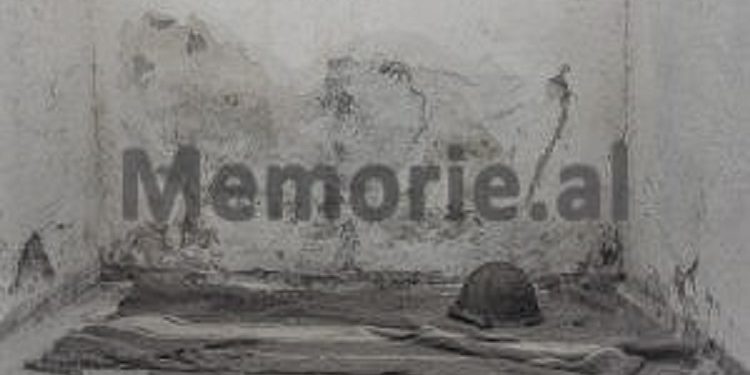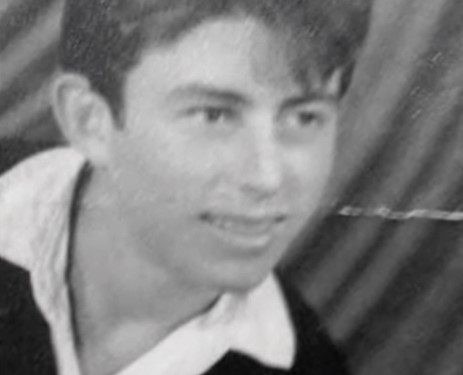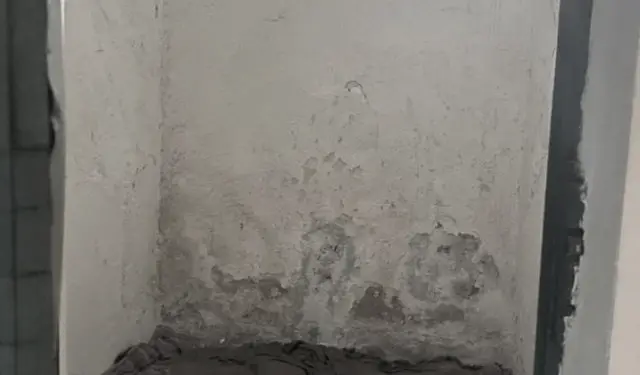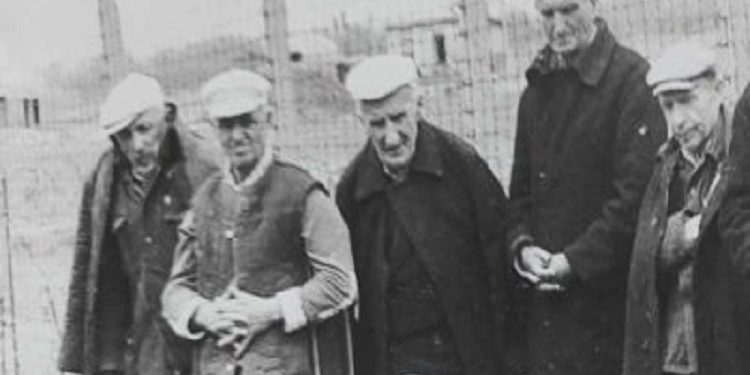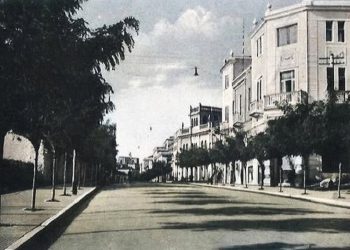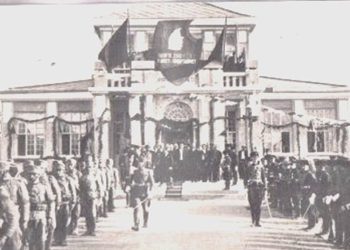By Shkëlqim Abazi
Part Fifty-Five
Memorie.al / I were born on 23. 12. 1951, in the black month, of the time of mourning, under the blackest communist regime. On September 23, 1968, the sadistic chief investigator, Llambi Gegeni, the ignorant investigator Shyqyri Çoku, and the cruel prosecutor, Thoma Tutulani, butchered me at the Branch of Internal Affairs in Shkodër, split my head open, blinded one of my eyes, deafened one of my ears, after breaking several of my ribs, half of my molars and the thumb of my left hand. On October 23, 1968, they took me to court, where the wretched Faik Minarolli gave me a ten-year sentence for political imprisonment. After half of my sentence was cut, because I was still a minor, sixteen years old, on November 23, 1968, they sent me to the political camp of Rrëshen (Reps) and from there, on September 23, 1970, to the Spaç camp, where on May 23, 1973, in the revolt of the political prisoners, four martyrs were sentenced to death and executed by firing squad; Pal Zefi, Skënder Daja, Hajri Pashaj and Dervish Bejko.
On June 23, 2013, the Democratic Party lost the elections, a perfectly normal process in the democracy we aspire to. But on October 23, 2013, the General Director of the “Rilindase” (Renaissance) Government, issued order No. 2203, dated 23.10.2013, for: Releasing a police employee from duty. So Divine Providence was intertwined with the neo-communist “Rilindase” Providence, and precisely on the 23rd, I was replaced by, no less and no more, the former Security operative of Burrel Prison. What could be more significant than that?! The former political prisoner is replaced by the former persecutor!
The Author
SHKËLQIM ABAZI
Continued from the previous issue
RREPS
(Forced Labor Camp)
Memoirs
The first meeting
(The boat sunk in the trough)
In the peripheral areas where the executions were carried out, residents of those areas often happened to find these unfortunate people after groaning, still half-alive or mutilated by beasts, before their soul had left. If a kind soul happened to be nearby, they would hastily bury them for a good deed, others would cover them with dirt so that infectious diseases would not spread. But there were also those who, when they recognized them, secretly handed them over to their families. People whispered about these atrocities, even at that time, but especially after the nineties, when people found their voice and spoke openly. There are dozens of documented cases from exhumations, with footage, where the remains were found tied up with barbed wire and cow chains. Worse still, half skeletons, bones without heads and heads without bones have been found!
At the beginning of this chapter, I spoke briefly about the causes of deaths in prisons. Now I will tell some concrete cases, as they were recounted to me by friends who witnessed them and those I saw with my own eyes. I spoke somewhat about the case of natural death; the other case concerns a death due to trivial reasons, due to a lack of treatment. The day I met Hashim Toplica, when he learned I was from Berat, the first question he asked me was related to a name mentioned a thousand times in family conversations. – “Do you know lawyer Estref Myftiu?” – Hashimi asked me. – “No!” – I replied curtly. – “I’ve heard a lot of talk, but I couldn’t possibly have known him myself, I wasn’t born when he was sentenced.”
– “Forgive me! That’s right, you couldn’t have known him, and he was one of the first arrests after the war!” – He paused for a moment, took a deep breath, and then continued: – “He was my friend in Burrel prison; he was one of the smartest and wisest men I’ve ever known in this life. But the way that poor soul died remains a mystery to me. They eliminated him in three days! Did he die from appendicitis or an intestinal obstruction, no one really understood! – Do you know how it happened?” – He paused again, and when I didn’t answer, he continued:
– “We, there in prison, had the most famous doctor in Albania, Isuf Hysenbegasi, a doctor known even in Europe. He was an unmatched specialist, but in the absence of means for surgical intervention, his hands were tied. In the case of the lawyer, when he absolutely had to be operated on, he remained powerless. The doctor immediately diagnosed it and insisted desperately with the prison command to send him to an operating room as soon as possible. However, the command, whether deliberately or not, what does it matter, delayed it, and when they took him to the hospital three days later, the patient was in his final throes and the intervention was unsuccessful, he died.”
– “Did he die poisoned?” – “No! He died murdered, my son! Even if they didn’t kill him with a rifle bullet, they killed him by not treating him in time! Perhaps they had destined him to die inside the prison, maybe if he came out alive, with his image of a humble Christ, he would ruin their work! When the doctor learned of the death of his closest friend, he was utterly desperate and cried out: – ‘Even if I had operated on him with a kitchen knife, I would have saved Estrefi! I am guilty for his death!’ Of course, the doctor was not guilty; he did everything he could to help the lawyer, just as he had done for hundreds of others who, if they are still breathing, owe thanks to him, Doctor Isuf!” – He concluded his story.
* * *
My friend Osmar Kazazi told me about another case, similar to the first: “In the early fifties, political prisons were severely overcrowded; thousands upon thousands of innocent people were languishing in the cells. Intellectuals, unaccustomed to manual labor, preferred the closed environments of the prison to the terrifying labor camps, where they had to face exhausting physical loads, for which they had neither the strength nor the age. Thus, the overwhelming majority of them voluntarily preferred isolation in prisons, despite the countless evils they had to endure there, just to escape the mud and blood-sucking leeches, in swamps and drainage and irrigation canals. In the cells, at least they felt more relieved because they had the opportunity to engage with books and studies. One of these intellectuals, who had chosen isolation as a way of survival, was the former Minister of Education during the brightest period of the Monarchy, the distinguished professor, Mirash Ivanaj.
Professor Ivanaj was sentenced under the direct influence of Enver Hoxha, after a far from friendly meeting with him. The reason was quite clear; in the thirties, when he was Minister of Education, he had cut the scholarship of the failing student, Enver Hoxha, for lack of results. Since the later dictator could never swallow the old insult, he would never forgive the professor for this fact. Upon seizing power, he chose primitive revenge, the consequences of which would be unimaginable. Now that the roles were reversed and the hypocritical former student had become the head of state, he would naturally use the levers he controlled to lead the life of the successful former minister to the brink. He would have his people, who swarmed everywhere, shadow him, lock him up in prison, and a few months before his release, they staged or stimulated an intestinal complication, caused by poisoning (evil tongues whispered that they had used cyanide), or contaminated food, or deliberately applied careless treatment, which nevertheless led the erudite man to the inevitable end, premature death.
This is what happened to anyone who jeopardized the fame of the great leader, except for the bootlickers who praised him and flattered him. This method, because they practiced it on many fellow citizens, schoolmates, and comrades-in-arms of the dictator who ended up either executed by hanging or bullet, or disappeared without a trace, or eliminated in hospitals, without clear diagnoses; for the sole fault of having had the misfortune of crossing paths with him in life, or simply because they were aware of the vices of his youth, quickly became exposed. Because of these acts, the language was loosened in prisons, people spoke openly.
According to the official statistics of the General Directorate of Prisons and the Ministry of Justice, published after the nineties, there are 987 people who died in prisons, not counting the 5,548 executed by firing squad, plus the 308 admitted to psychiatric hospitals, consequently also dead in the most cruel way, with mental virginity loss. A very considerable number for a population of one million! Naturally, the methods used by the state security for the extermination of elements considered enemies of their criminal power, from the day this bloodthirsty organization was created, on March 20, 1943, until July 2, 1991, when it was dissolved by law by the parliament resulting from the first pluralist elections, had been perfected.
The variety of tortures that the Security people used against the regime’s opponents far exceeded the Inquisition. Based on the research of the historian Uran Butka, they exceed the number twenty-five; but I am not sure how accurate this assertion is. However, according to what my prison friends have told me, and what I have seen myself, this number seems quite reduced to me. For anyone who has gone through the ordeal of communist investigation, it is quite easy to draw conclusions, because every investigator and police officer could invent and apply completely original types of torture, unknown and unlaunched before, in any guiding manual. No one kept notes and they did not ask for accountability for the loss of life of a political prisoner, so everyone could devise a new, never-before-used torment.
To reach an accurate conclusion on the number of tortures, one would have to ask one by one all the employees of the criminal chain of the Ministry of Internal Affairs, from the leaders to the simple prison police officers, but at the same time, all the dead who endured these atrocities on their backs must be resurrected. Even though in this chapter I do not aim to talk about tortures, but about the causes that led to death, intentionally or unintentionally, as an integral part of the violent machine that led dozens of unfortunate people to the grave, I mention them briefly.
Not necessarily, violent death could be caused by the abusers themselves, because often the abused chose, as salvation, voluntary departure from this world, as the only means they possessed to escape shame and further violence. The following event was told to me by my old friend from the prisons and after the prison, Bajram Danushi. In the years 1949-1951, Bajrami was arrested in the Gjirokastra prison. The death holes in the castle, since the time of Ali Pasha, no longer functioned as a prison, but for one hundred and fifty years, they had been transformed into a museum, where they declaimed to generations about the unprecedented barbarities that the bloodthirsty Pasha of Ioannina had inflicted on his opponents. In the mid-forties, the ignorant communists restored it to its original state, meaning they turned it into a prison. They locked up their political opponents there, from the surrounding areas, such as Delvina, Vlora, Tepelena, and especially from the rebellious villages of Picari, Lazarati, Libohova, and the entire Kurvelesh region and the minority. Thus, the holding capacity of the cells, from one or two people, which had been originally designed by the constructor, was now exceeded by five or six, up to ten people. One can imagine what misery reigned under that icy dome in winter and stifling heat in summer; in five square meters, political prisoners, pre-trial detainees, mice, bats, snakes… lived together, because the ordinary criminals were treated more humanely.
Around fifty-one, they brought a man from Vlora in his thirties to the cell where Bajrami was, who, through treachery, had fallen into the hands of the communists before his feet even touched the ground. It was the time when the State Security triumphed over the nationalist paratroopers, thanks to the dirty game of Kim Philby, the KGB agent, infiltrated into the ranks of the English and American intelligence services. The man from Vlora, a fierce brave man, refused any kind of cooperation with the Security organs. The sadistic investigators tried every torture on him, they took him with a blanket over his head day and night, they kept him under the iron rod for hours, but he, stubborn as he was, refused to reveal the bases and the people who were waiting for him.
One day, as always, they brought him from the investigation and dumped him like a sack of chaff into the cell, but he was silent and breathed deeply. His fellow sufferers rushed to help him, to ease his pain somewhat, one rubbing the veins of his neck, another wrist joints, another offering him the water bottle to moisten his parched lips. Bajrami, as the youngest in the cell, who was closest at that moment, spoke to encourage him: – “Oh Lutfi, hold on, you man of the earth! You are a Lab with roots!”
Strangely, unlike any other time, he did not speak, but continued to be mute. When he calmed down a bit, someone called him by name and offered him a box of cigarettes. The man from Vlora did not take it, but what surprised everyone was the way he answered: – “Don’t call me by name anymore! Before leaving here, I was Lutfiu, now I am no longer!” – and he sobbed silently. We were all stunned. We felt very bad for that handsome young man; it seemed the tortures had driven him mad!” – Bajrami recounted.
– “Hold on, you poor soul, we are all leaving our hair in this thorn bush! But a man who is a man is never afraid!” – broke the silence a big man, who would be executed by firing squad before the month was out. – “Take care of yourself, dear friend, because the wife cries, but the man endures!” – intervened a jovial man from Lazarat, who would also be executed by firing squad with the first one after a month. – “Better a bullet in the forehead than a kick in the balls!” – joked a man from Salaria, who kept his hands clasped under the belt of his traditional trousers, because a few days ago they had pulled out all his nails with pliers. The three of them together started singing: “I took the road to Ioannina, I was alone, eee…! Together with the coachman, well at night, eee…”, the echo of the Lab folk chorus roared through the stone domes.
Others in the nearby cells continued, and the song spread far and wide throughout the castle. But even this had no effect; the man from Vlora continued to sob and did not utter a word. Around midnight, I heard his sobs again; I cannot explain how I felt when that man vented all the venom that had accumulated in his chest. – “Bajram, are you sleeping?” – We were sleeping side by side, and his faint whisper brushed my ear. – “No, I can’t sleep today!” – I answered him. – “But why don’t you sleep?! Sleep, you poor soul, to calm down?”
However, the tone in which I expressed these words prompted him to speak more: – “What peace and black sleep are you talking about to me, may I sleep the great one!” – He vented, exasperated. – “Hold on, Luti!” – I encouraged him. – “And what Luti the affliction are you saying, oh Baro! Until yesterday I was Luti, now I am shit! Did you understand or not? I am shit, man!” – he spat all his resentment in my face, as if he were throwing all the world’s filth at me, as if I were the cause of all his misfortunes.
He was silent. After a while, he started again, more gently: – “Forgive me, Baro, my brother, my soul is bursting, I can’t take it anymore!” – He was breathing with difficulty, and then continued: – “Yesterday they took me to the interrogation, like every day, but they didn’t torture me with a stick, as always! No, man, on the contrary, they didn’t beat me at all! Two big police officers grabbed me, one by the feet and one by the head, and laid me down on a wooden bench, they crucified me like Christ with ropes, hands and feet, and stripped me naked, as my mother had made me. My head was free; I could move it up and down as I wished. At the end of the bench, they had fixed a thick steel rod, as thick as a pencil and as long as the ceiling. At its tip, they had tied a thin wire, like the threads used for snares that catch foxes and martens. The investigator, a wretch named Mezini, approached me, grabbed the rod and bent it, and hooked it somewhere in a clamp on the corner of the bench. They tied the thin thread into a noose, that is, around the head of my penis. When I saw the scene, I was terrified, but I thought they were doing it to scare me; I couldn’t believe that the human mind could conceive of such tricks! The investigator released the tip of the rod from the clamp; it, with the force of an arrow, sprang out of the socket of the bow drawn to the limit, and my body also shot up, pulled with force by the noose fixed to my organ, it went up like a spring. Oh my God, what pain! Horrible, piercing, burning, scorching! The entire weight of my body, arched like gymnasts, hung on a wire thread, tied to the head of my penis.
I felt violated! You can’t imagine how much I screamed from the unbearable pain; blood gurgled over my lower abdomen, and my trousers were stained red. My lungs felt as if they were filled with destructive acid, I couldn’t breathe, my heart fluttered like a wounded bird, the pain seemed to scratch my skull and paralyze every cell of my body. The investigator left me hanging for a few moments, then bent the rod and fixed it in the clamp again. He approached me and snarled at my nose: ‘Well, now, are you going to tell who was waiting for you and where your bases were?’ He didn’t give me time to answer, but released it. At once, the rod pulled me up again with the previous force. Now the pain crossed every limit; I fainted. My eyes blurred, I saw only red. I don’t know if I was covered in blood or if my vision went dark. My brain went on alarm, in a total frenzy, and my reason darkened.
– ‘Rest a little, you’re tired!’ – I heard the investigator ordering his subordinates, and then he bent the rod once more and fixed it in the clamp. – ‘Let’s see if this American carnation will remember those black curves of Brooklyn! Who did this type want to mock?’ The thought that he might release the rod and then… terrified me, and although I was in a severe state, I hurried to speak: – ‘Please, I’m dying, do whatever you want, just release me!’ – I begged him, and indeed I would do whatever he wanted, just to escape that unbearable torture. – ‘Good, untie his hands!’ – he turned to the guards. – ‘Sign here!’ – He handed me a piece of paper. I quickly reached out for the paper and grabbed it, as if my fate depended on that paper. And indeed, my life hung there. I signed it without reading what was written. The fear that he might change his mind and release the steel rod one more time prompted me to scribble as I was, on my back. Meanwhile, he ordered the police to untie me and put me in a trough of water.
They put me in the basin like small children. At first, contact with the water caused strong burning and scorching, but then I felt calmer. Even though the water was red with blood, I didn’t feel like getting up. The calmness of that moment made me drowsy, I became lethargic, my eyes closed, and my head hung over my chest. But the investigator did not let me sink into oblivion; he grabbed me under my chin, raised my head and frowned at me: – ‘I don’t usually dirty my hands with your kind, when I have the tongs, why should I burn my hand!’ – He shook the rod, on the tip of which the thin thread of the torture noose swung menacingly.
I got the message he wanted to convey; shivers ran down my spine. When he saw that I did not react, he continued without rushing: – ‘Tell me, do you want to start today or tomorrow leisurely?’ – ‘Tomorrow, I am exhausted! – I cut him short, because I was regaining clarity, thinking about the signature I had given and, full of anxiety, I looked at the noose twisting on the tip of the rod somewhere above his head. – ‘It makes no difference to me, I got what I wanted!’ – He said and shook the edge of the paper I had signed a little while ago in front of my eyes.
That piece of paper, fluttering like a severed butterfly wing in the hands of the cruel investigator, deepened my trembling. I didn’t know what I had done with my signature. Under the effect of psychological shock, I had signed haphazardly. Collaboration or perhaps even my death? I don’t know! But after all, what is the value of my life, when I think how many others will suffer because of that involuntary signature! That’s why I told you: – Before the violation I was Luti, now after the signature, I am shit!” – He was silent.
In the semi-darkness, I could feel his breathing, initially gasping, then lighter, and finally, it seemed to calm down. Sleep overcame him; it seemed his soul needed this venting of anger to be relieved. I spent that night almost sleepless, pondering what I had heard from the mouth of that harsh man. In the morning, around seven o’clock, they took us out for the morning “pajtoz” (exercise/airing), as was the time for airing and personal needs.
Lutfiu was sleeping; perhaps the tortures of the past day had exhausted him, he needed rest. I signaled to my friends not to wake him, as perhaps it was better. We did so, leaving without noise, one after the other. When I finished my personal toilet and rinsed my feet, running around the limited yard; I filled the water bottles and took them to the cell. I left them at the doorstep and ran out again to get the urine pots that I had washed and left out in the sun, for the foul smell of ammonia to dissipate.
With the vessels in my hands, I returned to the cell. Inside, silence and darkness. I blinked my eyes, which couldn’t adjust to the gloom of the stone walls of the cell. Blindly, I headed towards the place where Luti should be sleeping, to wake him up to go to the bathroom, because the day was long, and after twelve hours, it would be our turn to go out to the “pajtoz” and the latrine. With outstretched hands, I searched by estimation but did not touch anything. The bed was empty; “he must have gotten up and gone out,” I thought. At that moment, the evil thought didn’t even cross my mind.
After a while, my eyes began to get used to the darkness, when what do I see? In front of my nose, two legs were twitching stiffly. Above my head, he was swaying, disfigured, with his tongue hanging out and his eyes bulging, Luti…! Oh God! I grabbed him below the knees and lifted him quickly, as we lift a bundle. The noose loosened, but his tongue remained extended, hanging from the corner of his mouth, and then, a gush of blood burst from his throat, now freed, with pressure. Terrified, I let out a loud scream that the stone domes in the belly of the fortress multiplied tenfold. The echo was heard by my friends outside, who rushed in. Memorie.al




